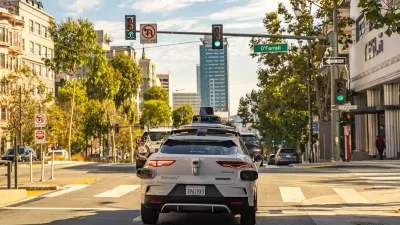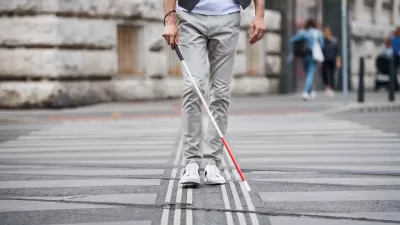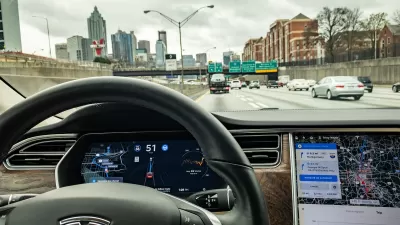The headline chosen here summarizes the argument put forward by Vox's Joseph Stromberg, who believes that self-driving cars will be a serious upgrade over the average human driver.
Joseph Stromberg writes an article supporting a claim that self-driving cars will provide enormous safety benefits to cyclists and pedestrians, citing the example of a biker who encountered a self-driving car in an intersection and did a track stand (an expert move that allows the cyclist to stand in place on the bike). The self-driving car barely moved as it tried to interpret the cyclist's small movements. Writes Stromberg:
"It's tempting to interpret all this as a sign of the steep learning curve Google's cars will encounter as they drive more in the complex conditions of the real world. But I think it shows something quite different.
Engineers will probably be able to teach the cars to distinguish between track stands and real movement fairly easily. But the cars will continue to drive with extreme caution and sensitivity, which is absolutely great news for cyclists and pedestrians."
Stromberg goes on to note that so far, experiments with self-driving cars have had the unintended consequence of providing evidence of the failures of human drivers. "As another Google post detailed, its cars frequently spot people driving on the wrong side of the road, dangerously turning across several lanes of traffic, and proceeding through intersections when there are still cars or cyclists in them. Human drivers zone out, miss cars in their blind spots, and often fail to spot bikes and pedestrians. This is part of why more than 30,000 people die in traffic crashes in the US each year," according to Stromberg.
FULL STORY: Why Google's self-driving cars will be great for cyclists and pedestrians

Alabama: Trump Terminates Settlements for Black Communities Harmed By Raw Sewage
Trump deemed the landmark civil rights agreement “illegal DEI and environmental justice policy.”

Study: Maui’s Plan to Convert Vacation Rentals to Long-Term Housing Could Cause Nearly $1 Billion Economic Loss
The plan would reduce visitor accommodation by 25% resulting in 1,900 jobs lost.

Planetizen Federal Action Tracker
A weekly monitor of how Trump’s orders and actions are impacting planners and planning in America.

Waymo Gets Permission to Map SF’s Market Street
If allowed to operate on the traffic-restricted street, Waymo’s autonomous taxis would have a leg up over ride-hailing competitors — and counter the city’s efforts to grow bike and pedestrian on the thoroughfare.

Parklet Symposium Highlights the Success of Shared Spaces
Parklets got a boost during the Covid-19 pandemic, when the concept was translated to outdoor dining programs that offered restaurants a lifeline during the shutdown.

Federal Homelessness Agency Places Entire Staff on Leave
The U.S. Interagency Council on Homelessness is the only federal agency dedicated to preventing and ending homelessness.
Urban Design for Planners 1: Software Tools
This six-course series explores essential urban design concepts using open source software and equips planners with the tools they need to participate fully in the urban design process.
Planning for Universal Design
Learn the tools for implementing Universal Design in planning regulations.
Caltrans
Smith Gee Studio
Institute for Housing and Urban Development Studies (IHS)
City of Grandview
Harvard GSD Executive Education
Toledo-Lucas County Plan Commissions
Salt Lake City
NYU Wagner Graduate School of Public Service





























